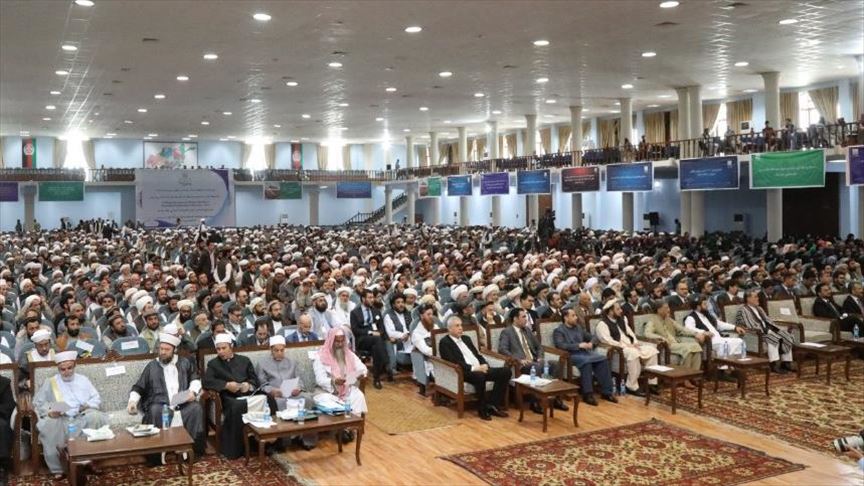Afghanistan hosts international symposium on Abu Hanifa
Revered scholars shed light on teachings of founder of Hanafi school of Sunni jurisprudence

KABUL, Afghanistan
An international symposium on Imam-e-Azam (the great imam) Abu Hanifa on Wednesday gathered revered scholars from many Muslim countries at the Afghan Presidency in the capital Kabul.
Vice President Mohammad Sarwar Danish inaugurated the three-day symposium that would see notable religious figures from Afghanistan, Turkey, Egypt, Central Asia and a number of other Muslim countries deliberating on various aspects of the life and teachings of the founder of Hanafi school of Sunni jurisprudence.
Speaking on the occasion, Danish said the teachings of Abu Hanifa encouraged Muslims to adopt and evolve in line with the time. He said the extremist ideologies propagated by terrorist organizations, such as Daesh, are in clear contrast to the legacy of Abu Hanifa.
The Afghan vice president said all Muslims and followers of Abu Hanifa need to stand against such movements.
Born to a family of an Afghan trader in Iraq’s Kufa during the Umayyad Caliphate, Abu Hanifa died during the Abbasid Caliphate in 767. The hallmark of Abu Hanifa’s legacy was the use of reason in his legal rulings.
Named after him, the Hanafi school has the largest number of followers among Muslims.
Turkey is set to hold next symposium in this connection next year.
From Ankara, theology teachers Prof. Ismail Hakki Unal, Prof. Enbiya Yildirim and member of the board of world scholars and UMAD’s Vice President Omar Korkmaz also attended the symposium in the Afghan capital.
Anadolu Agency website contains only a portion of the news stories offered to subscribers in the AA News Broadcasting System (HAS), and in summarized form. Please contact us for subscription options.







